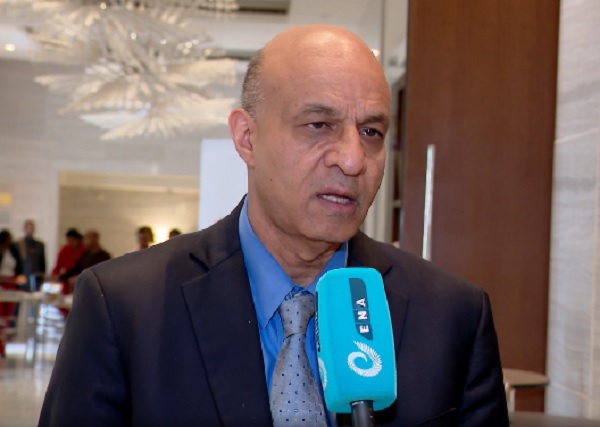 Addis Ababa, December 19, 2022 (Walta) – Ethiopia’s peace and reform programs will create opportunities to showcase achievements and galvanize foreign support for implementing its diverse and immense economic potentials for development, United Nations Development Program (UNDP) Economic Advisor, Ali Zafar said.
Addis Ababa, December 19, 2022 (Walta) – Ethiopia’s peace and reform programs will create opportunities to showcase achievements and galvanize foreign support for implementing its diverse and immense economic potentials for development, United Nations Development Program (UNDP) Economic Advisor, Ali Zafar said.
The UNDP Economic Advisor told ENA that the peaceful environment and the reforms are the achievements that the country should promote to galvanize foreign support to catalyze resources for the utilization of its diverse sectoral potential for development and growth.
“The peace environment and the reform program should be an opportunity for Ethiopia to showcase the accomplishment and also to galvanize foreign partners’ support to the reform program.”
Despite the challenges encountered over the last two or three years, Ethiopia has huge economic potentials and good development history, the economics advisor pointed out, citing huge resources and its strategic geographical location in the Horn of Africa.
“It (Ethiopia) faced a number of shocks, but now with the peace and also with the external environment, but there is a lot of potentials.”
“These factors can be catalyzed to help Ethiopia deepen its economic impact by having a stronger agriculture sector, a more professional, and modern services and manufacturing sector that helps Ethiopia double its export performance in the coming years,” the economic advisor explained.
According to him, modernizing and building a stronger agriculture sector in Ethiopia requires benefiting farmers by scaling up technology such as the use of fertilizer and seeds, solving land issues by allowing farmers to use it as collateral to promote economic development, and investing in climate-smart agriculture including drought-resistant seeds and irrigation.
The agricultural sector has huge potential and is promising, he added.
The government has been on the right track in agricultural and in the service sectors, drawing the best experiences from Asia and Africa, he observed.
“Ethiopia can have an even more modern and professional services sector,” the economic advisor said, pointing out that this could be done by increasing competition in providing services.
Appreciating the liberalization of the telecom sector, where Safaricom has come in, Ali stated that there is further progress to open up the banking and tourism sectors to foreign investors.
“So the idea is to bring in foreign ideas, foreign competition and help domestic firms scale up and improve the environment and also the incentive…So the banking will go to changes, the telecom sector will go to changes, but the end results will be better quality for consumers,” he elaborated.
The service sector has been nascent with successful sub-sectors, such as air transport, telecom and banking, and tourism, but it was not a driver of change to transform the economy, due to lack of competitions, Ali stated.
Amidst challenges, including conflict, climate change and COVID pandemic effects, Ethiopia has been implementing wide-ranging reforms, viz., the Home Grown Economic reform, which is aimed at restoring macroeconomic and financial stability as well as addressing structural bottlenecks and sectoral challenges; agriculture, manufacturing, mining, ICT, and tourism, having been identified as great potential areas to achieve economic transformation and growth in the country.